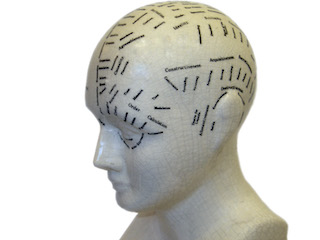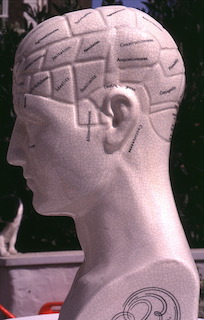
Exploring The World Of Psychology Deeply
Exploring The World Of Psychology Deeply
Psychology studies human thought, feelings, and behavior in daily life. Psychology is responsible for connecting processes of the mind to behavior under different conditions. Professionals study how people think, adapt, and react. Professionals meticulously study emotions and interpersonal interactions. Psychology continues to shape healthcare, education, and work environments globally. Psychology impacts individual growth as well as community health.
Psychology and human behavior
Psychology dictates how humans behave in society. Psychology defines how ideas, feelings, and behavior are intertwined to develop everyday habits. Scientists explore how individuals react to pressures, success, and disagreements. They analyze the way pressures from society change styles of choice-making. Psychology also investigates learning, memory, and motivation. These areas establish deeper interactions between individuals and their environments.
Psychology in mental health
Psychology allows people to cope with mental health successfully. It examines depression, stress, and anxiety from multiple dimensions. Therapists employ different methods to cure patients. These include cognitive therapy, behavioral therapies, and mindfulness exercises. Most of the treatments build emotional strength and enable healthy living. Psychology also supports prevention by triggering improved coping mechanisms.
When there is child development
Psychology is at the forefront of research on child learning and development. Specialists examine language, problem-solving, and the expression of feelings. Specialists investigate children’s development of attachments and social skills. Early experiences have a powerful impact on later behavior patterns. Psychology is also used to identify early developmental problems. Early intervention improves outcomes for children in most settings.
Workplace
Psychology improves work performance and job satisfaction. Psychology researches motivation, communication, and leadership. Psychological research is applied by organizations to improve cooperation and reduce stress. Psychological methods are also applied by training programs to enhance problem-solving. Healthy workplaces are made possible when managers apply psychology lessons. Employees have improved morale and better job satisfaction.
Education
Psychology extends learning and teaching performance. Psychology analyzes the manner in which students receive, retain, and apply information. Educators adopt psychological strategies to adapt lessons for pupils with different learning requirements. They also adopt motivating methods to keep learners engaged. Studies reveal remarkable memory aids and class strategies. Psychology still impacts modern education across the world.
Social relationships
Psychology affects the manner in which individuals form and maintain social relationships. It examines trust, empathy, and communication in relationships. Researchers examine how and why conflicts arise and how people settle disputes. Researchers study friendship, family, and romantic relationships. Social psychology also considers group behavior and cultural effects. All these results promote better relationships among individuals and society.
Sports and performance
Psychology enhances competitiveness and sports performance. Athletes apply psychological methods to keep their focus during periods of stress. Visualization and positive thinking contribute to success. Coaches employ psychological methods to increase motivation. Team cohesion also improves through efficient use of psychology. The strategies help athletes stay confident and achieve higher levels of performance.
Cultural diversity
Psychology examines world cultural diversity. Psychology examines the influence of tradition, values, and beliefs on behavior. Researchers study social variations in communication and expectations. Researchers analyze how culture influences mental health treatment. This awareness helps to create inclusive practice in many settings. Psychology continues to enhance world harmony and cultural harmony.
Daily decision making
Psychology controls decisions every day. People take risks and rewards, as well as feelings, into account when making a decision. Research shows the effect of biases on thought patterns. The media and marketing control consumer choices based on psychology too. Greater awareness helps to make more balanced decisions. Applying principles of psychology ensures better personal and financial decisions.
Technology
Psychology is very closely related to emerging technologies. Researchers study the impact of computer tools on attention, focus, and memory. They experiment with how social media impact self-esteem. Technology also helps in therapy via online platforms. Virtual reality is studied for curing phobias. Psychology ensures that computer tools lead healthier lives and psychological toughness.
Aging
Psychology facilitates healthy aging for groups. Psychology investigates memory, cognition, and emotional functioning in older adults. Therapists support older adults to maintain independence and life satisfaction. Research promotes active engagement in old age. Learning and social engagement prevent the deterioration. Psychology keeps older adults mentally sturdy and engaged.
Law and justice
Psychology strengthens justice systems by enhancing fairness. Experts study eyewitness memory, decision-making, and stress behavior. They assist courts with mental state evaluations. Police also make use of psychological techniques in the course of investigations. Offender rehabilitation programs utilize psychology to reduce recidivism. These contributions strengthen justice systems in the world.
Physical health
Psychology aids physical health by connecting body and mind. Stress-reducing techniques lower illness risks. Therapy encourages improved habits like exercise and rest. Chronic disease patients gain from psychological treatment. Relaxation practices also enhance the outcome of recovery. Psychology continues to emerge as important for encouraging healthier lifestyles worldwide.
Creativity
Psychology defines creativity in human brains. Researchers examine inspiration, imagination, and problem-solving skills. They seek to understand what sparks creativity across the board. Artists and inventors benefit from psychological understanding. Enhanced creative thinking improves performance at work and at school. Psychology shows how imagination allows individuals to create and solve complex problems in fresh ways.
Leadership
Psychology guides leadership attributes in society. Psychology shows how vision and empathy guide leaders. Research governs attributes that affect group success. Organizations employ psychological wisdom to design more resilient leaders. These pieces of wisdom guide better decision-making and communication. Psychology-driven leaders foster healthier and more productive groups.
Resilience
Psychology increases resilience during difficult times. People use coping mechanisms to manage adversities. Therapy boosts mental resilience and confidence. Positive thinking accelerates healing after failure. Resilience training programs empower communities. Psychology is beneficial in guiding individuals towards personal growth and increased adaptability to life challenges.
Special contributions of psychology
Psychology demonstrates how behavior and thinking connect across life phases. It affects personal development, social development, and organizational development. Experts continue to widen its use to medicine, education, and culture. Through psychology, people gain new ways to promote well-being. It remains a developing field with influence across normal life around the world.


